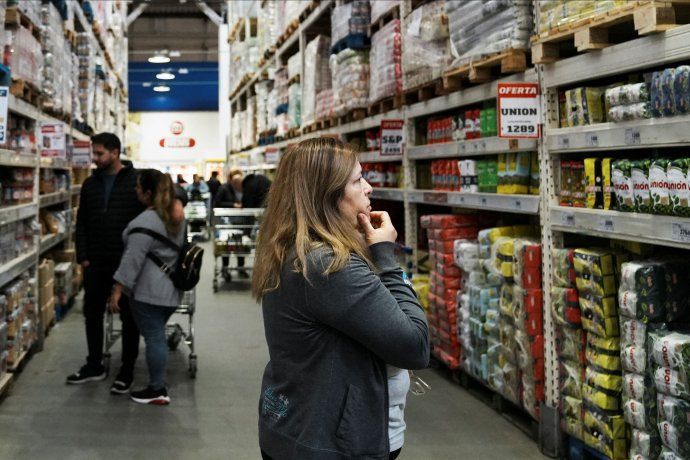Regarding consumer habits, in April the trend of looking for cheaper brands was consolidated and the purchase of non-essential products was postponed. The most affected sectors include personal care, cosmetics and perfumery.
This type of stores mainly serves the daily purchases of lower-income families, reaching those most in need through this channel.
Reuters
Wholesale sales of essential products decreased by 6% in April. According to the Argentine Chamber of Distributors and Wholesale Self-Services (CADAM), the reduction in inflationary expectations has led businesses to stop making large purchases, which reflects greater economic stability and the need to sell more.
The content you want to access is exclusive to subscribers.
Regarding consumer habits, in April the trend of looking for cheaper brands was consolidated and the purchase of non-essential products was postponed. The most affected sectors include personal care, cosmetics and perfumery.


The National Institute of Statistics and Censuses of the Argentine Republic (INDEC) published the “Wholesale self-service survey”, which covers everything from food to electronics, clothing and home textiles. Therefore, CADAM develops a specific monitor for essential mass consumption products, such as beverages, grocery, bakery, dairy, cleaning and perfumery items, to provide more detailed data.
The comparison with official data
Official results indicate a 6% drop in sales compared month to month at current prices. According to CADAM, the decrease in inflation expectations and the reduction in sales have generated a disinflation process due to competition between wholesalers and large chains. Retailers are no longer making large purchases, which could explain the 6% drop in April compared to March. There is also a lower number of units per ticket and a lower frequency of purchases.
Regarding consumption habits, the sale of desserts, yogurts, sweets, sausages and drinks in general continues to decrease, while purchases of basic products such as oils, flour and sugar increase. In the cleaning sector, the variety of products is reduced and consumption focuses on essentials such as bleach, with the largest drop in cosmetics and perfumery. In oral care, there is a decrease in the purchase of mouthwash, for example.
inflation supermarkets wholesale prices consumption

Reuters
For May and June, Wholesalers are receiving price lists with increases from industries and are trying to adjust costs so as not to transfer the increases to final prices.although the long holidays in June generate a drop in sales and increase personnel costs.
It should be noted that approximately 61% of sales are made through the traditional trade channel, made up of wholesalers who supply a network of 140 thousand warehouses, pharmacies, perfumeries and 13 thousand self-service stores throughout the country. This type of stores mainly serves the daily purchases of lower-income families, reaching those most in need through this channel.
Source: Ambito




